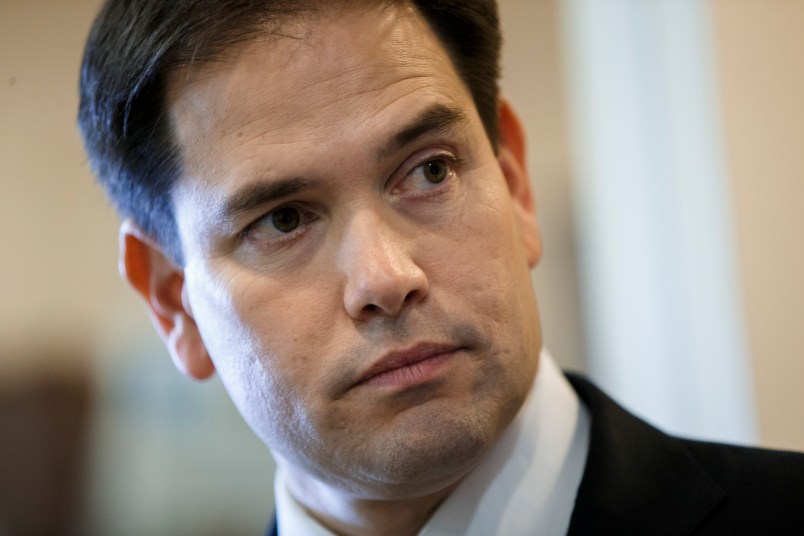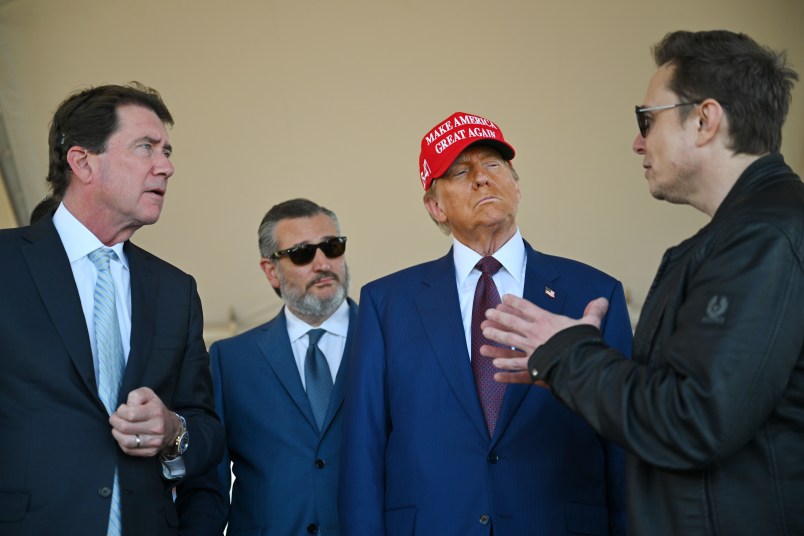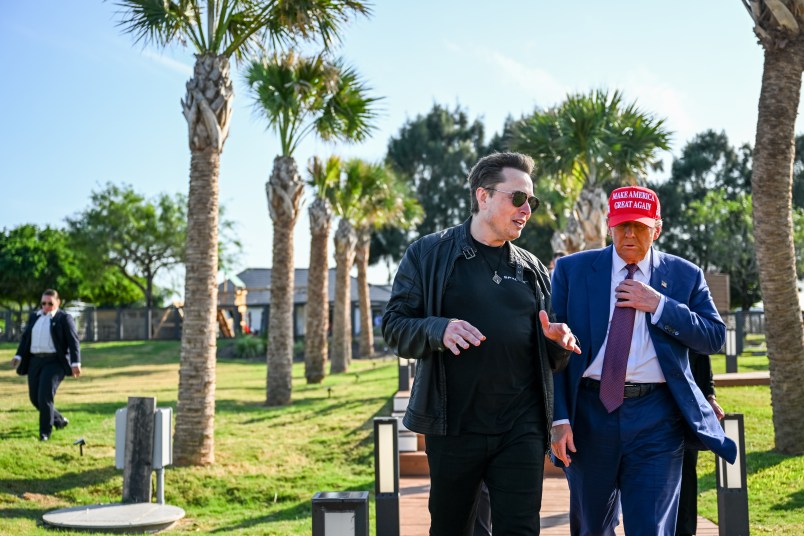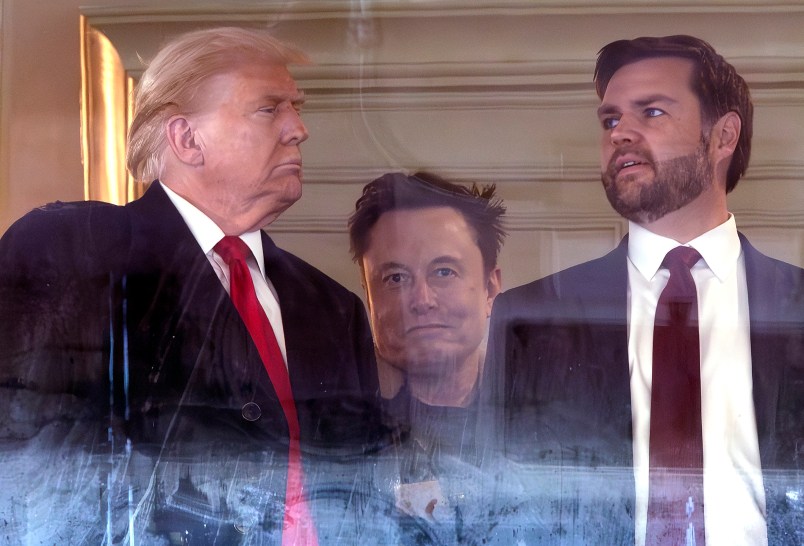There are so many things going on here: one is the deep, unresolved specter of the Iraq War looming over the Republican party, notwithstanding what seemed like a rapid fire consensus last week that it was a bad idea; another is the fact that Marco Rubio just doesn’t seem like the most cognitively dexterous contender for the Republican nomination. Whatever it is, after seeming to come down on the side of ‘knowing what we know now, it was a mistake’ side of the equation, Rubio went back to the other side of the debate and then stumbled and then got miffed when Fox News Sunday anchor Chris Wallace grilled him on his flip-flop and then apparent re-flip live on this morning’s show.
One side note to observe in this unfolding debacle about the debacle is that basically every interview that propels this story forward is happening on Fox News, the media arm of the Republican party, where Republicans go to get safe haven from challenging interviews. Even on Fox, this is happening.
I think we can also see that Brendan James and Daniel Strauss were prescient in pointing out that in his first ‘yes, it was a mistake’ answer Rubio tried to use the cover of President Bush now saying he wouldn’t have invaded Iraq – knowing what we know now – even though Bush definitely has never said that.
Remember that Rubio, more than any other current Republican presidential contender is vying to be the candidate of the neoconservative foreign policy wing of the party. So completely jettisoning the Iraq War and President Bush is a dicey proposition.
Here’s the exchange between Wallace and Rubio and the full transcript below …
WALLACE: This brings us back to Iraq and the question of the week, which is, given what we know now, would you have invaded Iraq back in 2003?
As we all know, Jeb Bush had a tough time answering that this week.
Here’s what you’ve had to say.
(BEGIN VIDEO CLIPS)
UNIDENTIFIED FEMALE: Was it a mistake to go to war in Iraq?
(CROSSTALK)
RUBIO: Oh, I don’t believe it was — the world is a better place because Saddam Hussein doesn’t run Iraq.
MODERATOR: After finding that there were no weapons of mass destruction, would you, if you knew that, have been in favor of the Iraqi invasion?
RUBIO: Well, not only would I have not been in favor of it, President Bush would not have been in favor of it. And he said so.
(END VIDEO CLIPS)
WALLACE: Senator, isn’t that a flip?
Six weeks ago, it made sense to invade Iraq in 2003. Now you say it was a mistake.
RUBIO: No, they’re two different questions. It was not a mistake. The president, based on — this is the way the real world works. The president, based on the information that was provided to him —
WALLACE: But she was saying based on the information —
(CROSSTALK)
RUBIO: No, no, but, look, there’s two different —
WALLACE: She was saying based on the — what we know now.
RUBIO: Well, based on what we know now, a lot of things — based on what we know now, I wouldn’t have, you know, thought Manny Pacquiao was going to beat in — in that fight a couple of weeks ago.
(CROSSTALK)
WALLACE: — you got asked the same question and you said since.
RUBIO: No, that was not the same — no, that was not the same question. The question was whether it was a mistake. And my answer was it’s not a mistake. I still say it was not a mistake, because the president was presented with intelligence that said Iraq had weapons of mass destruction, it was governed by a man who had committed atrocities in the past with weapons of mass destruction —
WALLACE: But, what she asked you was, was it a mistake to go to war with Iraq?
RUBIO: It was not a mistake given the fact that what the president knew at the time.
WALLACE: No, she didn’t say that. She just said, was it a mistake?
RUBIO: Well, that’s not the same question. The question I was asked is, what you know now? Well, based on what we know now, I think everyone agrees that we still —
WALLACE: Was it a mistake — was it a mistake to go to war with Iraq?
RUBIO: It’s two different — it wasn’t — I —
WALLACE: I’m asking you to —
RUBIO: Yes, I understand, but that’s not the same question.
WALLACE: But I’m asking — but that’s the question I’m asking you, was it a mistake to go to war?
RUBIO: It was not a mistake for the president to decide to go into Iraq, because at the time, he was told —
WALLACE: I’m not asking you that. I’m asking you —
RUBIO: In hindsight.
WALLACE: Yes.
RUBIO: Well, the world is a better place because Saddam Hussein is not there.
WALLACE: So, was it a mistake or not?
RUBIO: But I wouldn’t characterize it — but I don’t understand the question you’re asking, because the president —
WALLACE: I’m asking you, knowing — as we sit here in 2015 —
RUBIO: No, but that’s not the way presidents — a president cannot make decision on what someone might know in the future.
WALLACE: I understand. But that’s what I’m asking you. Was it a mistake?
RUBIO: It was not a mistake for the president to go into Iraq based on the information he was provided as president.
Today, we know of their — if we — if the president had known that there were no weapons of mass destruction at the time, you still would have had to deal with Saddam Hussein. But the process would have been different. I doubt very seriously that the president would have gotten, for example, congressional approval to move forward with an invasion had they known there were no weapons of mass destruction.
That doesn’t mean he made the wrong decision, because at the time he was presented with intelligence —
WALLACE: I understand that, but —
RUBIO: — that said there are weapons of mass destruction. He wasn’t dealing with a Nobel Peace Prize winner. He was dealing with Saddam Hussein. And he made the right decision based on the information he had at that time.
We’ve learned subsequently that that information was wrong and my answer was — well, if at the time it would have been apparent that the intelligence was wrong, I don’t think George Bush would have moved forward on the invasion and he certainly wouldn’t have had Congressional approval.
But presidents don’t have the benefit of hindsight. You have to make difficult decisions based on the information that’s before you at that moment.









